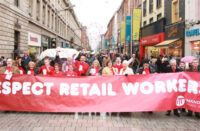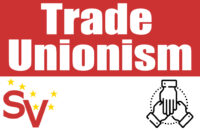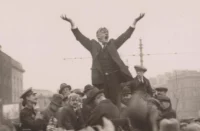In November’s Socialist Voice I wrote an article on the High-Level Report on Collective Bargaining, entitled “An opportunity, not a panacea.” In it I suggested:
“For this opportunity will only be of value if the movement invests significant time, resources and energy in the organisation, structurally, of workers in their work-place so that they are strong, willing, and able to invoke this mechanism.”
There are three areas in particular that Irish unions need to focus on if this potential legislation is going to have a positive effect on union density and power. Progress has been made in all three of these areas over the last two decades, but a renewed emphasis and vigour is required. So this is not starting from a standing position but from one of a positive trend.
Invest in specialist organisers
Organisers—those in unions specifically dealing with building union membership and structure—are still numerically too small a cohort. For a movement that says it’s about growing and rebuilding, it is incredible how few are actually dedicated to this challenge.
And even those who are in place are often spending time doing work that should be done by shop stewards or elected officers, many of whom have facility time, in employments with union recognition and collective bargaining. This work often involves very basic membership lists, increasing the union’s visibility, and recruitment at inductions. By taking this work into paid staff we hollow out our movement and waste workers’ resources.
We need many more organisers, and we need them to concentrate on building new union structures in unorganised work-places, training shop stewards to take action, build membership, build participation, and negotiate with employers. We also need to elevate our best organisers into positions of influence and power in the movement, so that these ideas and tactics become mainstreamed.
Change the focus of union officials
The most numerous role in unions remains that of the full-time official, largely dedicated to the act of negotiating with an employer and to representing individual union members, mostly on a very professional and diligent basis.
Full-time officials occupy the crucial position in the movement engaging with workers, employers, and the union’s leadership. But the role is largely one of advocacy, arguing for or against a particular issue, whether it is individual or collective. It is not one of organising and unleashing workers’ power in a strategically and tactically sound way.
Full-time officials are well entrenched in the movement, and many have occupied their position for a long time. They understand well how to resist change, and were often hired on their ability to do so. This does not make for an innovating cadre of leaders willing to evolve and adapt with new tactics and ideas.
But this role must change to concentrate primarily on the construction of support for workers’ power in employments and sectors.
Empower and train members
To do this we need to train and educate activists, and members more generally, in a trade unionism that emphasises their agency and their power. The results they want are dependent on them as workers, not on a full-time official or an industrial relations process.
If they are many, and disciplined, they’ll win what it is they want, in simplistic terms. Too much union training still deals with taking the issue off workers and then acting. Whether that’s individual representation, collective negotiations, or political lobbying, we often train to actually disempower rather than train to involve workers in the resolution of their own issue through their own activity.
The movement needs to push activity down through the layers of the structure, back to members and into the work-place. We need to train our layers of activists in much of the work now done by organisers and by full-time officials, both to improve the quality of union structure in the work-place and also to provide the resources for unions to organise the unorganised and take advantage of this potential opportunity.
In the July issue I wrote an article entitled “What is the trade union movement fighting for?” in response to a debate on “partnership,” essentially asking the question, What are we organising for? In this I argued against national wage-setting mechanisms and for keeping pay in the realm of the work-place, because, as I see it, the trade union movement,
“right now at this historical juncture in this balance of class power, must focus its energy and resources on rebuilding unions structurally at the work-place level and organising new sectors and workers into the movement. That is the immediate task that confronts us. Removing pay bargaining from this site of struggle and mobilisation will hinder, not assist, strengthening and building unions back up . . .”
Communists in the trade union movement must be to the fore in fighting for this change of movement. This will pit us against entrenched views, both staff and elected, happy to see out their time “servicing” a declining pool of members who they see as paying their union for a service.






